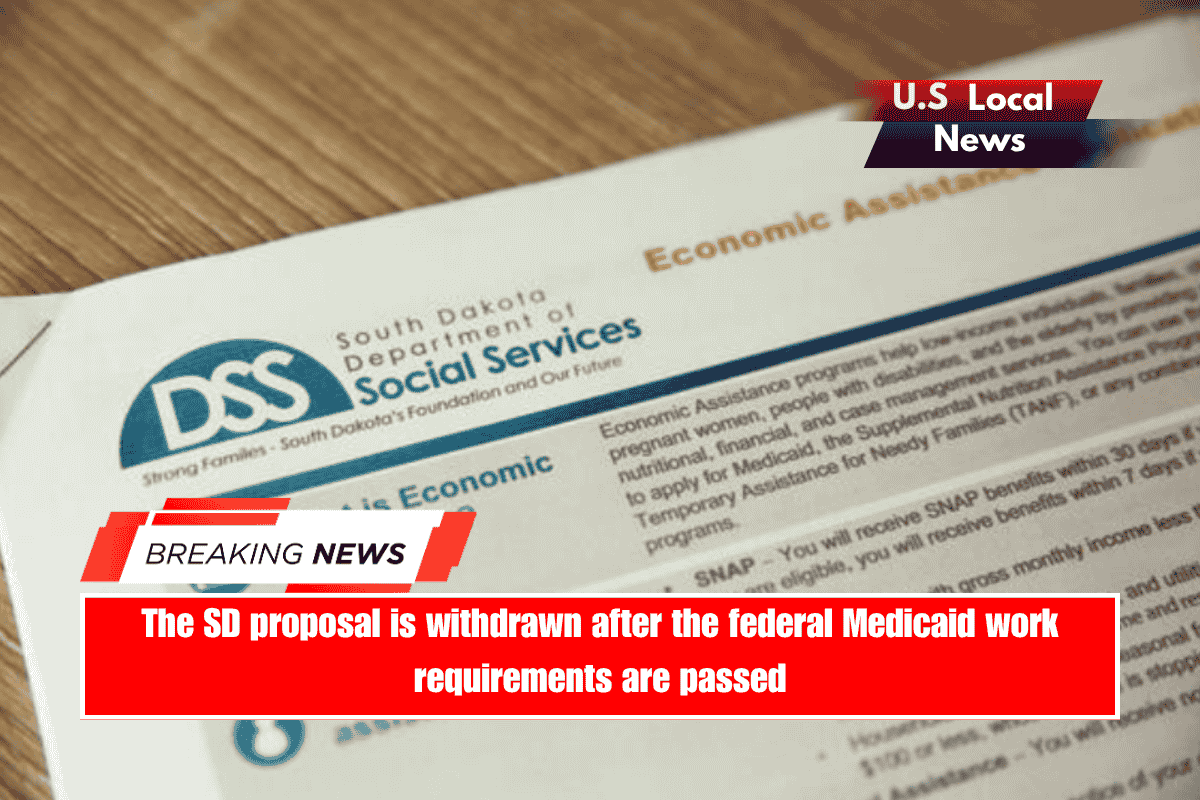A South Dakota Department of Social Services financial aid application. (Mackenzie Huber/South Dakota Searchlight)
South Dakota will withdraw its Medicaid expansion work requirements proposal now that President Donald Trump has signed federal requirements into law, state Department of Social Services Secretary Matt Althoff confirmed to South Dakota Searchlight.
“We don’t have a choice,” Althoff explained.
States must apply for a federal waiver to impose their own requirements. The new law, which was passed earlier this month, “constricts any waivers” that are more lenient than federal requirements, Althoff explained.
During a public hearing, officials stated that the state’s proposal would have included fewer paperwork and tracking requirements than the federal level. Shortly after it became clear that federal requirements could be adopted, Althoff labeled the waiver application a potential “exercise in futility”.
The department proposed its work requirements this spring after South Dakota voters approved a constitutional amendment in November that allows the state to seek work requirements for the federal-state program.
Medicaid is a government-funded health insurance program for low-income individuals. South Dakotans voted in 2022 to expand Medicaid to adults with incomes up to 138% of the poverty line, allowing the state to benefit from a 90% federal funding match.
The federal work requirements will require those aged 19 to 65 who rely on the program to work, volunteer, or attend school for 80 hours per month. Participants will have to meet those requirements a month before enrolling, and Medicaid renewal will be moved from an annual to a six-month cycle.
The federal government makes exceptions for people who are disabled, pregnant, eligible for the Indian Health Service, in foster care, were previously in foster care and are under the age of 26, or were released from incarceration within the last 90 days, among others.
South Dakota’s plan would not have mandated a minimum number of hours to be eligible, but would have required Medicaid recipients to work, train, attend school, or care for a child, elderly, or disabled person in their home, unless they qualified for an exemption. Compliance with state-level work rules would have been evaluated annually, at the time of Medicaid renewal, rather than at the time of application.
During the public hearing, South Dakota Medicaid Director Heather Petermann stated that the state’s proposed requirements were intended to “encourage” work rather than “trying to track arbitrary work hours.”
Federal work requirements must be implemented by the end of 2026.









